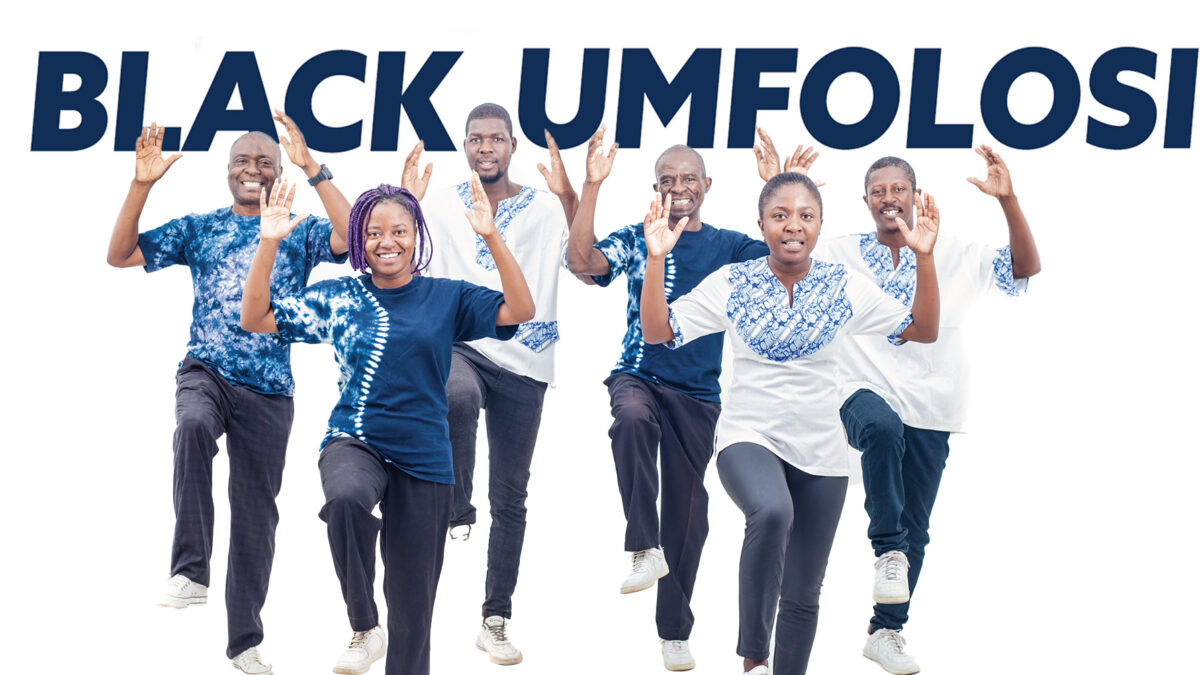This July we’re joined by Black Umfolosi, whose performances are inspired by the traditional song and dance of Zimbabwe, and other regions of southern Africa. Their trademark harmonies and intricate rhythms are energy driven. They mix a great gentleness of spirit and song with an exuberance in dance.
We caught up with Luzibo Tabona Moyo, on behalf of the group, to find out more.
How are you feeling about your upcoming show in Worthing?
Travelling and seeing new places is always exciting. Especially for this new cast because two junior members are touring in the UK for the first time.
What can audiences expect from Black Umfolosi – without giving too much away?
Our audience can expect a musical journey through the ages. Brought forward by the acceptance of social change in the imbube industry, where women in imbube are unheard of. And here we are as Black Umfolosi; embrace and respect the powerful blend of female and male voices. Expect a show produced and directed by our seasoned remaining founding father, Sotsha Moyo
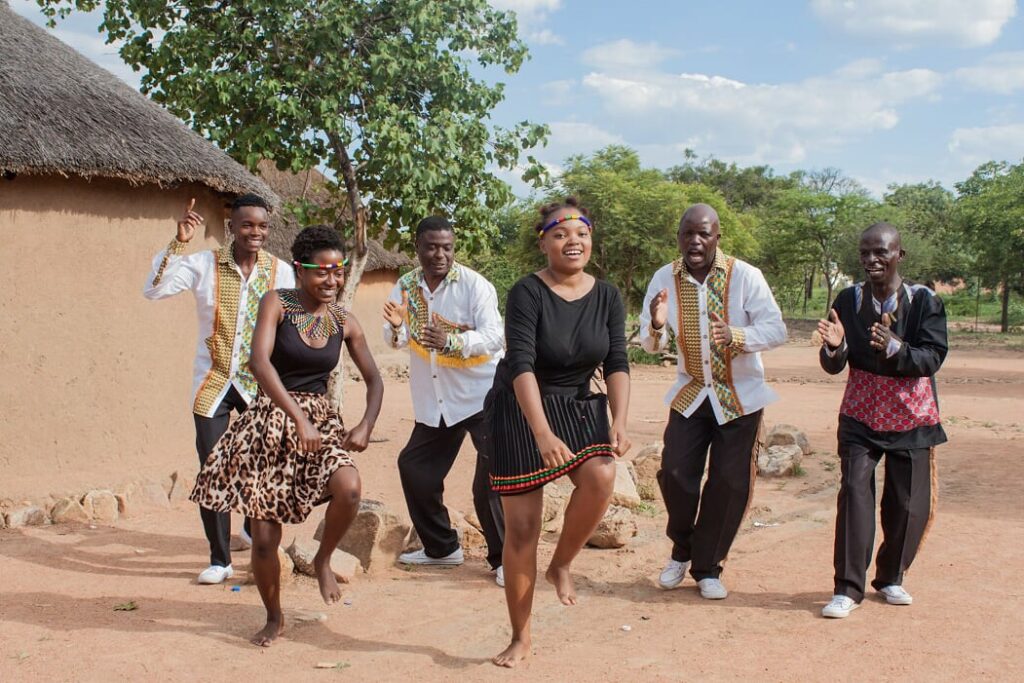
How did Black Umfolosi begin, what brought the group together?
Black Umfolosi was formed in 1982 by students at a rural boarding school, George Silundika High school. The youngsters where hungry to keep the traditional acapella alive as they noticed the growing influence of western pop music and electronic instrumentation in music.
How do you prepare for performances?
We do a lot of team building exercises, obviously we rehearse and practice. Plus we always pray right between vocal warmups and hitting the stage .
Your show demonstrates traditional acapella singing and dance from Zimbabwe. How do you decide which songs and dances to feature in your performances?
That is one of the many things our show does. It also provides an insight on current affairs from the view of an African living in Africa. Yet the melodies contrast the storytelling so we perform with its authentic rooted side. It is likely that that very limitlessness gives us flexibility to preserve our classics whilst embracing new musical possibilities.
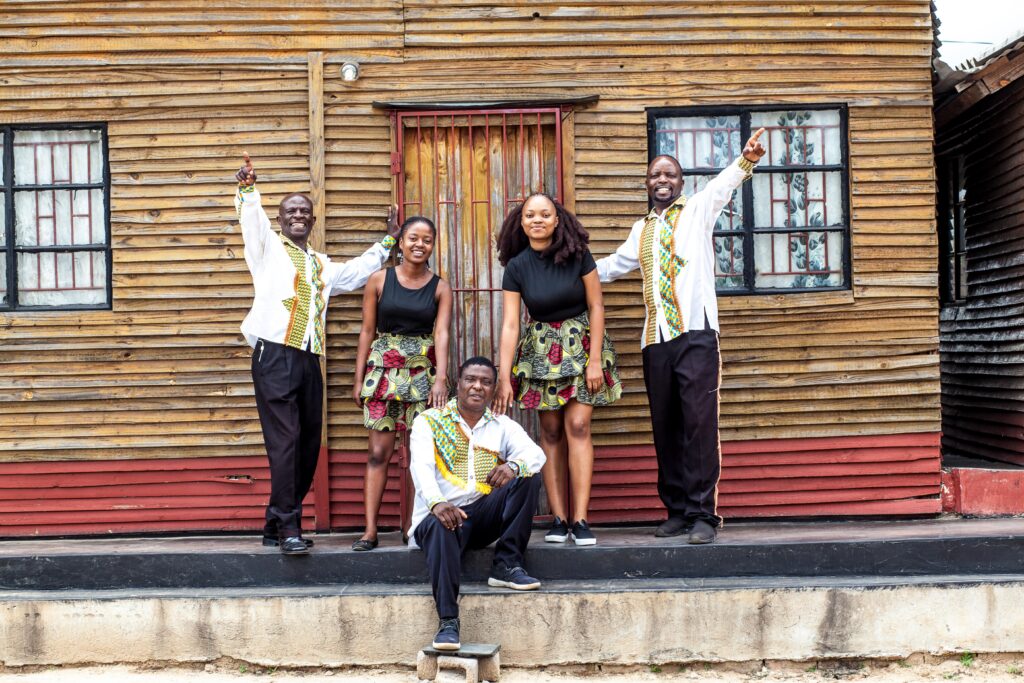
What can you share with us about the history of Imbube music and its origin?
Imbube Music is mainly a four part harmony with a call and response musical arrangement. That’s the technical definition. Now as for the definition we prefer, Imbube Music is a cultural treasure that preserves an essential part of history. That is how our ancestors used and translated sound and frequencies. Imbube Music is a glimpse into the first human being’s interpretation and intelligence. It dates back to when men went out to hunt and women gathered in the Iron Age. Songs written and sung in rituals, ceremonies, celebrations and general house chores.
For someone who hasn’t heard of Imbube music, what are the main characteristics of this style of singing?
We usually workshop our audiences and schools. Imbube has a lead vocalist who is responsible for choosing the key and tempo of the song. Then the backing vocalists; alto, tenor and bass with the occasional soprano respond to the leader by agreeing, emphasising, debating or questioning the lyrics of the leader. The musical arrangement differs as per song but most are divided into:
- The storytelling session which is usually the first
- The bridge where the story is being concluded and the moral of the story emphasised
- The chorus, were the group has established a constant and consistent chant that gives space to dance freestyles to help express the message of the song.
What do you enjoy most about being part of Black Umfolosi?
I enjoy seeing the impact this music has on people. It is ageless and timeless. Minimalistic and honest. Plus it makes me feel like I keep an important part of our heritage; the purity of our forefathers’ musical expression.
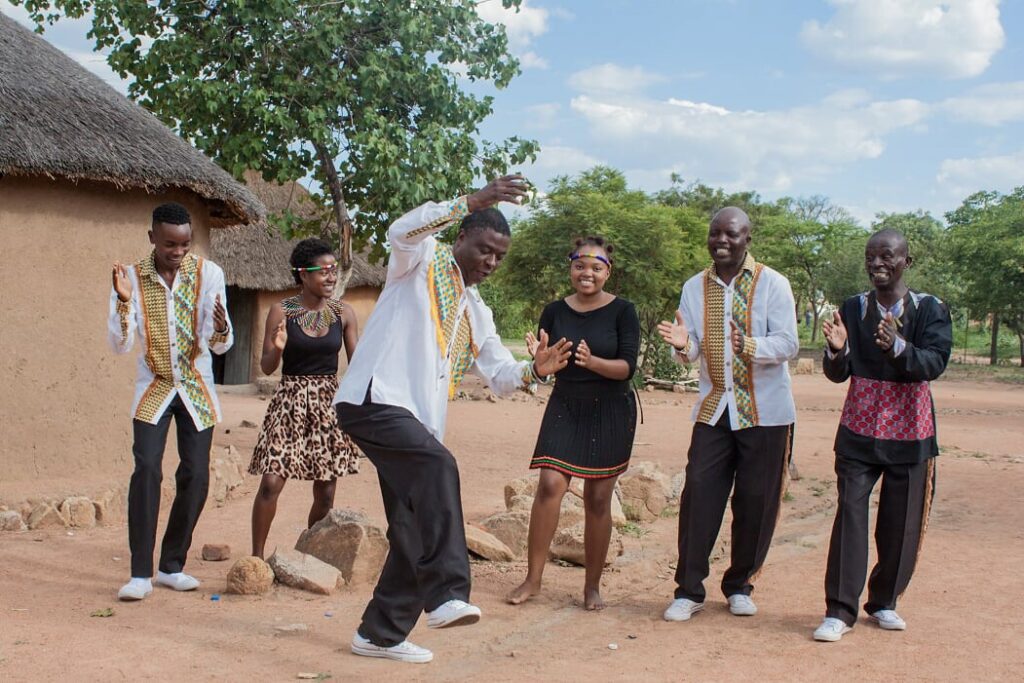
What advice do you have for someone who wants to learn more about traditional music and dance?
My advice would be to just do it. Expose yourself to practitioners of traditional music and culture. Research and seek out information, communities and connections on social media. It’s easier these days.
What do you see as the main issues faced by young performers of traditional music?
The main issues faced by young performers of traditional music is lack of support. When young people hold on to their cultural heritage they are pressured into going with the times. Following trends without knowing if they clash with the principles of your history is dangerous. Yet the need to belong can be very persuasive. So if you have a child or children who love anything to do with their people’s history, I encourage you to support them.
What has been your favourite career highlight whilst with Black Umfolosi?
My favourite so far is travelling. Not only am I sharing my culture but I get to be exposed to people of different cultures.
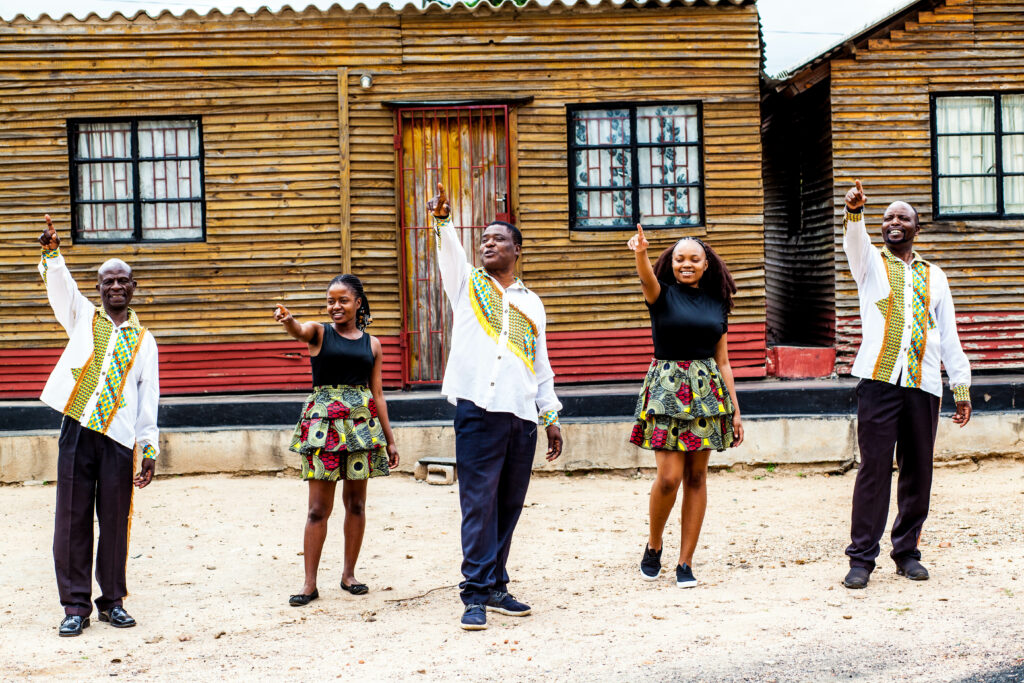
Do you have a favourite musical group, or another acapella group whose work you admire?
My favourite musical group has to be Bob Marley and the Wailers. In the acapella world the groups whose work I admire is the Pentatonix
What do you hope audiences will take away from this show?
We hope audiences will have a good stress-relieving time first of all. Secondly, that they have an appreciation for African traditional music and music history.
Get a taste of energised, traditional music and dance with Black Umfolosi this July.

